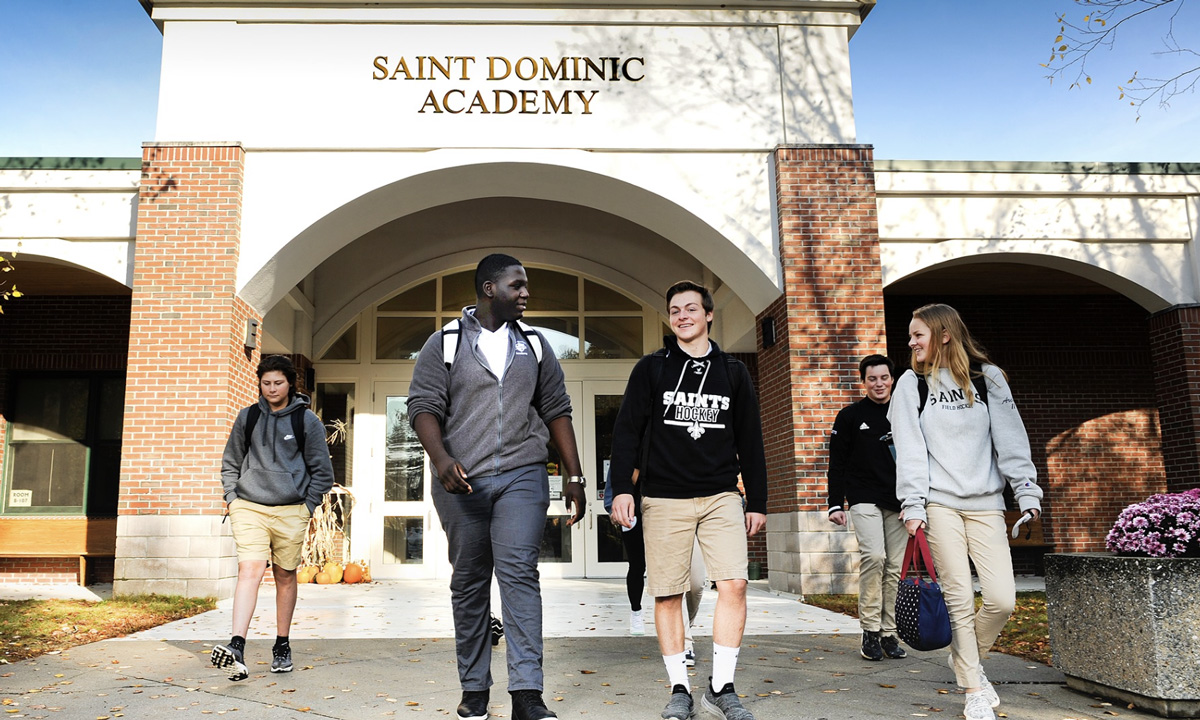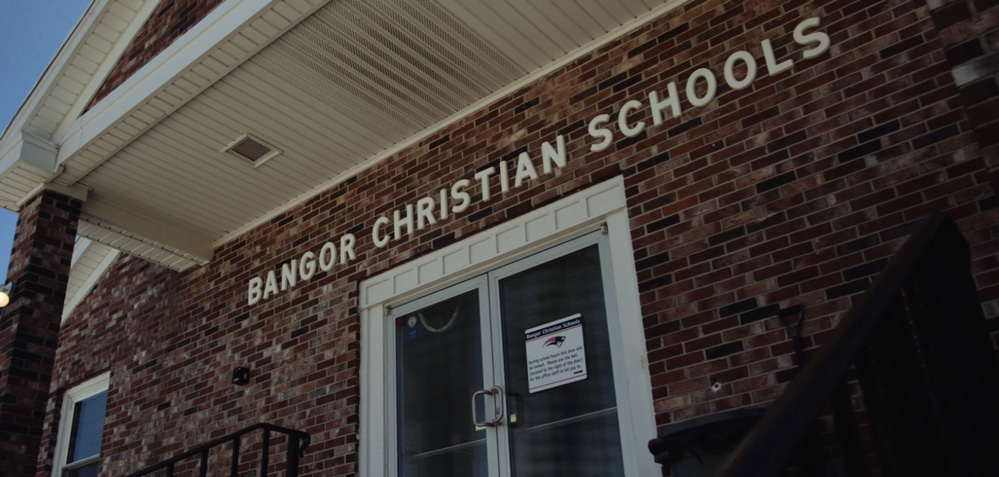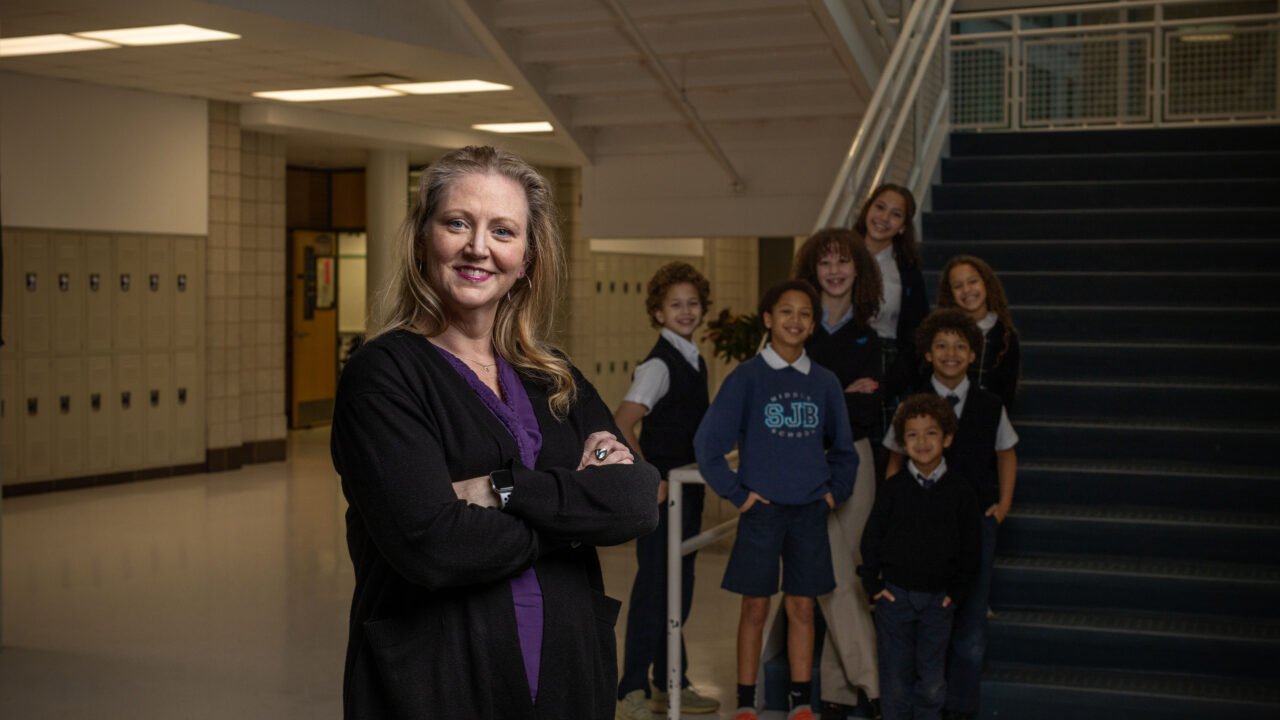Maine Case Opens New Battleground for School Choice: The Right to Discriminate
Some religious schools say serving LGBTQ students violates their faith. One voucher opponent said they want a ‘blank check to do what they want.’

Get stories like this delivered straight to your inbox. Sign up for The 74 Newsletter
In a landmark 2022 ruling, the U.S. Supreme Court said states can’t exclude faith-based schools from voucher programs because they practice religion. That opinion, Carson v. Makin, turbocharged the spread of private school choice programs across red states.
Now Christian schools in Maine, where the case originated, want the courts to go even further.
They object to a state law that requires them to accept all students, including those who don’t follow their religion, have disabilities or identify as LGBTQ. The U.S. Court of Appeals for the First Circuit heard the case in January.
“This moral panic over letting religious schools be religious — even if they’re receiving tuition subsidies — needs to end,” said Adele Keim, senior counsel with the Becket Fund for Religious Liberty. The nonprofit law firm represents St. Dominic Academy in Auburn, Maine, which sued over the rule along with CrossPoint Church, which operates Bangor Christian Schools.
The nondiscrimination law, schools say, prevents them from participating in “town tuitioning” — a program that picks up a student’s private school costs if there’s no public option in their community.
The state argues that it’s only asking religious schools to comply with the same rules public and secular private schools follow.

“The schools are asking for special treatment,” said Alexandra Zaretsky, litigation counsel for Americans United for Separation of Church and State. The nonprofit advocacy group submitted a brief to the court in support of Maine’s position. “It should be the state’s prerogative to say ‘If you’re getting funding from the state, then you have to follow our generally applicable laws.’ ”
Most states with voucher programs already allow private and religious schools to deny admissions to whomever they want. Maine is an outlier — a blue state that would prefer to keep religious schools out of the tuitioning program.
The debate reflects a heightened concern among advocates for public education that the nationwide push for private school choice will further isolate students.
“Religious schools getting the taxpayer-funded ability to pick their own kids is one real goal of this school voucher push — a feature, not a bug,” said Joshua Cowen, an education professor at Michigan State University. Last year, he released “The Privateers,” a book that delves into the way culture war battles have fueled private school choice.
In March, he testified in opposition to Texas’ new ESA law, which passed in April with help from President Donald Trump. The president called GOP members of the state House, urging them to vote yes. Earlier in that marathon hearing, which lasted nearly 24 hours, Laura Colangelo, executive director of the Texas Private School Association, said private schools could deny admission to a child whose mother wasn’t married when she got pregnant.
Texas law says the state can’t force a school to modify policies tied to their religious beliefs. If the Maine case goes the religious schools’ way, such rules would be “less necessary,” Cowen said.
“I’m a Christian man. I sing in a church choir. I can still say what these schools want to do is wrong,” he said. “These guys just want a blank check to do what they want, even if it’s leaving some kids and families out.”
A ‘source of balkanization’
The issue was also at the forefront of Oklahoma’s legal fight to open a religious charter school, a debate that both supporters and opponents of the idea expect to eventually wind up back in court.
In April, the U.S. Supreme Court tied 4-4 on the question of whether charter schools are private and can explicitly teach religion. The deadlock allowed the Oklahoma Supreme Court’s decision against St. Isidore of Seville Catholic Virtual School to stand. Though promising not to turn any students away, school leaders said they would only call students by their birth names and pronouns and would refer students with disabilities to their local district if accommodating their needs disrupted class.
Some experts see the prospect of sectarian charter schools as a threat to American values.
“Public education, including public charter schools, is one of the few things that holds our society together,” said Richard Kahlenberg, who directs the American Identity Project at the Progressive Policy Institute, a think tank. “It’s the common experience for 90% of American schoolchildren.”
“If you suddenly have … Christian students going to their schools, Jewish students going to theirs, Muslim students going to theirs, that means fewer Christian students come to know Jewish and Muslim students as classmates and friends,” Kahlenberg said in a panel discussion prior to the Supreme Court’s ruling in the Oklahoma case. “Our public schools are already highly segregated by race and class, and this would just layer on religion as a new source of balkanization.”
‘Infinite number of options’
In Utah, the state’s teachers union sued last year over a new ESA program because they say it “diverts” education funds to schools that discriminate in admissions. In April, a state district court judge ruled the program unconstitutional.
“We firmly believe, and a judge agreed, that public money belongs in public schools,” said Hailey Higgins, communications director for the Utah Education Association.
To choice supporters — and the Trump administration — the more private schools that cater to families’ individual preferences, the better. That’s the argument that the Institute for Justice, a libertarian law firm, along with parents currently in the program, made in their appeal to the Utah Supreme Court.

When she learned about the lawsuit, Amanda Koldewyn, an Ogden mother of four, said she felt “anger, frustration and panic.” Her 12-year-old son, who has autism, was getting sick from anxiety in public school and was “bored out of his mind” in class. The Utah Fits All scholarship allowed her to find a curriculum where he can move at his own pace and pay a private math tutor for her daughter. She hopes to use the program for her 5-year-old twins this fall as well.
“I can actually get the resources that aren’t just passable, but are fine tuned to what my children need,” she said. “I get really, really angry at those few teachers who think public school is the only way.”
The debate over whether religious schools in choice programs can refuse to serve families who don’t share their values is also playing out with younger students in Colorado. The state’s universal preschool program requires participating schools to accept students from families regardless of parents’ housing status, income level, or religion, sexual orientation or gender identity.
Two Catholic schools sued over the regulation, saying they couldn’t participate in the program because their faith prohibits them from accepting LGBTQ students or parents. That means the state doesn’t pick up the cost for students in those schools. The case is now before the U.S. Court of Appeals for the 10th Circuit.
In other countries, it’s far more common for students to attend religious schools at the government’s expense. Ontario, Canada, fully funds Catholic school districts. In European countries like the Netherlands, over half of students attend government-funded religious schools.
Many countries place requirements on those schools that choice advocates in the U.S. would resist, explains Sam Abrams, director of the International Partnership for the Study of Educational Privatization at the University of Colorado, Boulder. Religious schools often follow the same criteria for student admissions as public schools, teach to national standards and submit to monitoring visits.
“It’s all regulated, and you can’t screen kids out,” he said, noting that in recent school choice cases, the conservative justices on the Supreme Court never referenced how these systems work in other countries. “They’re not going to talk about the European system. It forces them to acknowledge that what [the U.S.] is doing is very different.”
Maine’s demands on religious schools depart from the way the tuitioning program used to operate. For decades, Catholic and other religious schools were “willing and active participants in this program,” Keim said. That ended in the 1980s — what she called the “shag carpet-era view of the Establishment Clause” — when the legislature passed a law excluding religious schools.
“For 25 years, Maine families have been knocking at the courthouse door and asking the federal courts to let them back in,” Keim said.
In 2021, as the Carson case made its way to the Supreme Court, lawmakers amended the Maine Human Rights Act to prohibit discrimination against students in all private schools receiving public funds, including religious schools. The real “poison pill,” she said, is a provision that requires religious expression without discrimination.
“If they’re going to allow a Catholic pro-life club,” she said, “they’re going to have to allow a Catholic pro-choice club.”
If the schools prevail in court, St. Dominic’s won’t be accepting any high school students. While the pre-K through eighth grade school will still operate, the high school closed this year due to low enrollment.
“I’m sure the picture would be different,” Keim said, “if they had been allowed to receive these subsidies over the long term.”
Get stories like these delivered straight to your inbox. Sign up for The 74 Newsletter

;)
